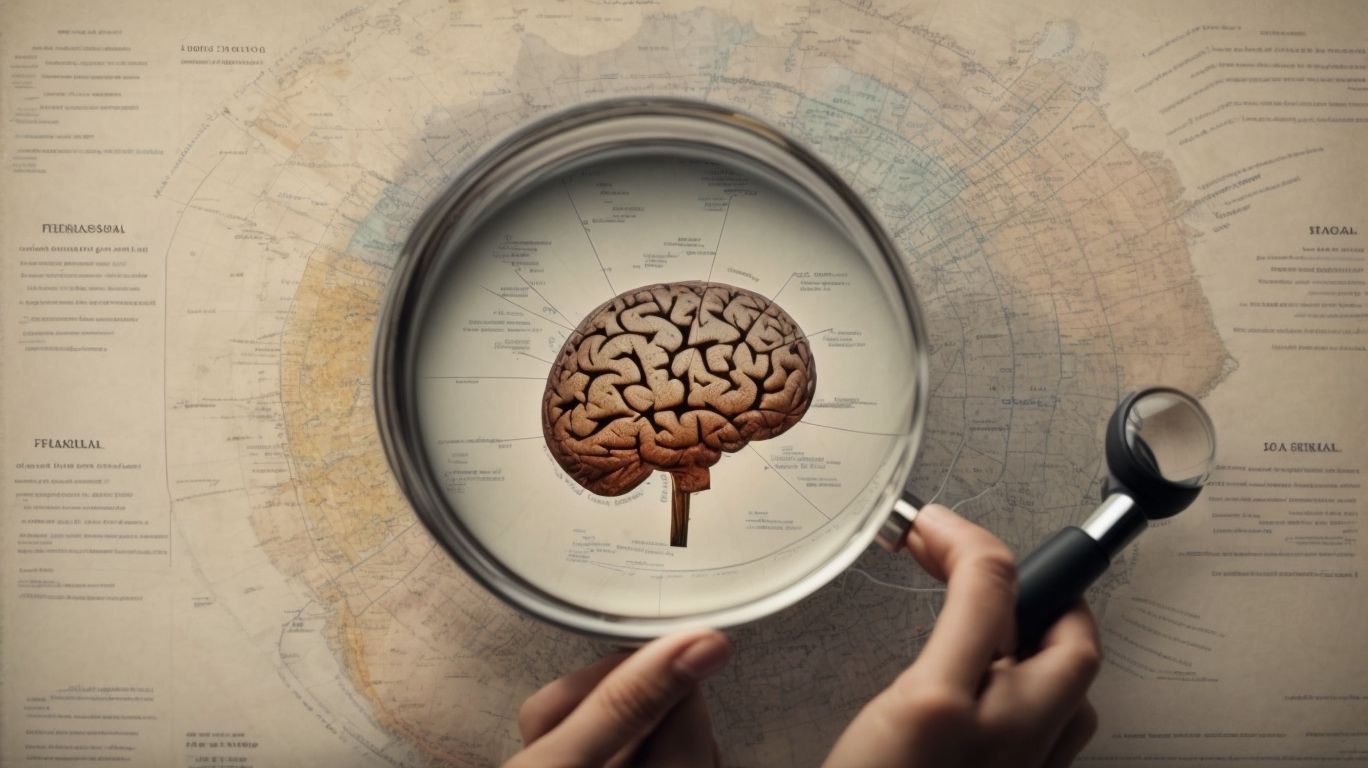Have you ever wondered what psychology really is and how it can be applied in everyday life? In this article, we will explore the different branches of psychology, including clinical, cognitive, developmental, social, educational, forensic, and industrial-organizational psychology.
We will also delve into the distinction between psychology and psychiatry, as well as the key theories in psychology, such as psychoanalytic theory, behaviorism, humanistic psychology, cognitive psychology, and evolutionary psychology. We will discuss how psychology can be used to better understand and navigate our daily experiences. So, let’s dive in and unravel the fascinating world of psychology!
Contents
Key Takeaways:
- Psychology is the study of the mind and behavior, and it encompasses a wide range of branches, theories, and applications.
- Some of the key branches of psychology include clinical, cognitive, developmental, social, educational, forensic, and industrial-organizational psychology.
- While psychiatry focuses on diagnosing and treating mental illnesses, psychology examines human behavior and mental processes in a broader context.
What Is Psychology?
Psychology is the scientific study of behavior, mental processes, and the factors that influence human and animal experience, consciousness, and the mind.
Psychology encompasses a broad range of topics and involves the scientific methods to study individual and group behavior.
To gain a deeper understanding of the complexities of the human mind, psychologists conduct extensive research that ranges from controlled laboratory experiments to large-scale population studies.
Influential figures such as Sigmund Freud, B.F. Skinner, and Carl Rogers have significantly shaped the discipline with their pioneering contributions.
What Are the Different Branches of Psychology?
Psychology comprises various branches that encompass specialized areas of study, including behaviorism, cognitive psychology, developmental psychology, clinical psychology, and social psychology, each exploring distinct facets of human behavior and mental processes.
Clinical Psychology
Clinical psychology is a branch of psychology that focuses on assessing, diagnosing, and treating mental, emotional, and behavioral disorders, integrating scientific principles with therapeutic interventions to improve the lives of individuals and promote mental well-being.
Assessment in clinical psychology involves the use of standardized tests, interviews, and observations to comprehensively evaluate an individual’s psychological functioning and determine the presence of any mental disorders.
Therapeutic modalities, such as cognitive-behavioral therapy and psychodynamic approaches, are utilized to address and alleviate symptoms associated with various mental health conditions.
Psychologists in clinical settings work collaboratively with other healthcare professionals, employ evidence-based practices, and conduct research to continually advance the understanding and treatment of mental disorders.
Influential figures in clinical psychology, such as Aaron Beck and Albert Ellis, have significantly contributed to the development of therapeutic approaches and assessment methods in the field.
Cognitive Psychology
Cognitive psychology delves into the study of mental processes such as perception, memory, and problem-solving, exploring the underlying cognitive mechanisms and neural substrates that contribute to human thought, behavior, and decision-making.
One of the central themes in cognitive psychology is the concept of working memory, which refers to the system that actively holds multiple pieces of information for a short duration while performing mental operations.
This process plays a crucial role in the execution of complex cognitive tasks, and its study has implications for understanding learning, problem-solving, and decision-making.
Cognitive psychology often draws on theories such as Piaget’s stages of cognitive development and Erikson’s psychosocial stages.
These theories have greatly influenced the understanding of cognitive processes from infancy to adulthood, helping researchers comprehend the development of cognitive abilities and their impact on individual differences in perception and problem-solving.
Developmental Psychology
Developmental psychology focuses on the study of human growth, maturation, and behavioral changes across the lifespan, encompassing physical, cognitive, social, and emotional developmental processes from infancy to old age.
This article examines the stages of development, including infancy, childhood, adolescence, and adulthood, and how individuals navigate these transitions.
Key theories such as Piaget’s theory of cognitive development, Erikson’s stages of psychosocial development, and Vygotsky’s sociocultural theory provide frameworks for understanding these developmental milestones.
Influential factors affecting human growth and behavior, such as genetics, environment, parenting styles, and cultural influences, play pivotal roles in shaping individual development.
Notable developmental psychologists, including Jean Piaget, Lev Vygotsky, and Erik Erikson, have contributed significantly to our understanding of human development.
Social Psychology
Social psychology investigates the impact of social influences, interactions, and group dynamics on individual behavior, cognition, and emotions, aiming to elucidate the complexities of human social behavior within various societal contexts.
Social influence within social psychology refers to the way in which individuals’ thoughts, feelings, and behaviors are affected by others. This concept is often studied through influential social psychologists such as Stanley Milgram, known for his experiments on obedience, and Solomon Asch, renowned for his work on conformity.
Understanding social influence is crucial in comprehending how individuals are influenced by authority figures or conform to group norms. Group dynamics, another pivotal theme in social psychology, explores how individuals behave within groups, addressing topics such as leadership, communication patterns, and decision-making processes.
Educational Psychology
Educational psychology focuses on understanding the cognitive, emotional, and social aspects of learning and teaching, applying psychological principles to enhance educational practices, curriculum development, and student well-being in diverse educational settings.
This field encompasses the study of learning processes, instructional methods, and the application of psychological theories in educational contexts. It delves into how students acquire knowledge, develop cognitive skills, and manage their emotions within the educational environment.
Influential educational psychologists such as Lev Vygotsky and Jean Piaget have played a crucial role in shaping this discipline. Their research has contributed to the understanding of child development, social learning, and the influence of cultural context on learning.
Educational psychology encompasses various learning theories such as behaviorism, cognitivism, and constructivism, which offer different perspectives on how individuals acquire knowledge and skills.
Forensic Psychology
Forensic psychology pertains to the intersection of psychology and the legal system, focusing on applying psychological principles to understand criminal behavior, evaluate witnesses, and provide insights for legal decision-making processes.
Within the realm of criminal profiling, forensic psychologists utilize their expertise in understanding psychological patterns and behaviors to create profiles of potential suspects, thus aiding law enforcement in their investigations.
In the assessment of witnesses, forensic psychologists employ their knowledge of memory, perception, and suggestibility to evaluate the accuracy and reliability of testimony, which plays a crucial role in the legal proceedings.
Their role extends to providing psychological insights to the legal system, offering evaluations and expert opinions that aid in determining the mental state of defendants, assessing competency, and addressing issues such as trauma and mental health disorders that may impact legal proceedings.
Influential figures in forensic psychology, such as Dr. Richard N. Kocsis and Dr. Robert D. Hare, have made significant contributions to the field through their research and work on criminal behavior and assessment tools.
Their impact has extended to shaping investigative practices and legal processes, emphasizing the importance of integrating psychological expertise into the criminal justice system.
By bridging the gap between psychology and the law, forensic psychology plays a vital role in facilitating fair and thorough legal proceedings while addressing the complexities of human behavior within the context of crime.
Industrial-Organizational Psychology
Industrial-organizational psychology encompasses the study of human behavior in work environments, addressing topics such as employee motivation, leadership dynamics, and organizational effectiveness to enhance productivity and employee well-being.
Industrial-organizational psychology professionals study workplace behavior, including employee attitudes, job satisfaction, and the effects of leadership styles on team performance. They also analyze organizational dynamics, such as structure, culture, and processes, to understand how a workplace functions.
This field has many applications in human resource management. Its insights inform recruitment strategies, performance evaluations, and training programs, all aimed at maximizing organizational success.
How Is Psychology Different from Psychiatry?
While both psychology and psychiatry are concerned with mental health, psychology focuses on understanding human behavior and cognitive processes through empirical research and psychological interventions, whereas psychiatry emphasizes the diagnosis and treatment of mental disorders through medical interventions and pharmacological treatments.
Psychologists primarily employ psychotherapy, behavioral interventions, and psychological testing to help individuals cope with emotional and behavioral challenges.
On the other hand, psychiatrists are medical doctors who can prescribe medication, and they often utilize biological and neurological interventions to address mental health conditions.
Notably, the distinct approaches of psychology and psychiatry contribute to the comprehensive care and multidisciplinary nature of mental healthcare, which often involves collaboration between these two fields.
What Are the Key Theories in Psychology?
Psychology encompasses several key theories that have shaped the discipline, including psychoanalytic theory, behaviorism, humanistic psychology, and evolutionary psychology, each offering unique perspectives on human behavior, cognition, and mental processes.
Psychoanalytic Theory
Psychoanalytic theory, pioneered by Sigmund Freud, focuses on the role of the unconscious mind, the dynamics of personality, and the influence of early childhood experiences on psychological development, shaping the theoretical landscape of modern psychology.
In Freudian psychoanalytic concepts, the unconscious mind acts as a reservoir of feelings, thoughts, and memories that are outside of conscious awareness but greatly impact behavior.
According to Freud, the defense mechanisms serve to protect the individual from anxiety and include processes like repression, regression, and denial.
The psychosexual stages, as proposed by Freud, delineate the developmental phases from infancy to adulthood, emphasizing the significance of resolving conflicts at each stage for healthy psychological functioning.
Behaviorism
Behaviorism, as advocated by John B. Watson and B.F. Skinner, emphasizes the study of observable behaviors and the impact of environmental stimuli on human and animal responses, laying the foundation for the empirical study of behavior within psychology.
This approach rejects unobservable mental processes, focusing instead on observable behavior and the stimulus-response associations that shape it.
Operant conditioning, a concept introduced by Skinner, highlights the influence of reinforcement and punishment in shaping behavior. It revolutionized the understanding of learning and behavior.
Notable experiments like Pavlov’s classical conditioning studies with dogs and Skinner’s operant conditioning experiments with pigeons have contributed significantly to the development of behaviorist theories in psychology.
Humanistic Psychology
Humanistic psychology, championed by Carl Rogers and Abraham Maslow, emphasizes the innate potential for personal growth, self-actualization, and human experience, emphasizing the subjective and conscious aspects of psychological well-being.
This approach rejects the traditional psychoanalytic and behaviorist perspectives, prioritizing the individual’s subjective experiences and their capacity for self-actualization. This means that individuals strive to realize their fullest potential and achieve personal growth.
Central to humanistic psychology is client-centered therapy. This approach focuses on the individual’s self-awareness and their own capacity for healing. Humanistic psychologists adopt the humanistic-existential perspective, which emphasizes personal responsibility, authentic existence, and the search for meaning and fulfillment in life.
Cognitive Psychology
Cognitive psychology explores mental processes such as memory, attention, and problem-solving, employing an information processing framework to understand the intricate cognitive mechanisms that underlie human thought and behavior.
This field places emphasis on how individuals acquire, process, and store information, delving deep into the interactions between different cognitive faculties.
A key concept within cognitive psychology is the study of information processing models, which elucidate how people perceive, recognize, and comprehend incoming information.
Influential cognitive psychologists like Ulric Neisser and George Miller have significantly contributed to our understanding of cognitive processes, paving the way for empirical investigations that uncover the complexities of human cognition.
Evolutionary Psychology
Evolutionary psychology applies Darwinian principles to understand human behavior, emphasizing the role of evolutionary adaptations in shaping cognitive processes, social behavior, and psychological traits to enhance survival and reproductive success.
This approach stems from the belief that humans, like all living beings, have evolved over time, leading to the development of specific behaviors and psychological mechanisms.
Adaptive behaviors are examined in the context of their contribution to improving individual fitness and ensuring the transmission of genes to future generations.
Evolutionary psychologists such as David Buss and Leda Cosmides have made significant contributions by elucidating how various psychological traits and behaviors are manifestations of evolutionary adaptations.
Understanding the evolutionary principles underlying human cognition, emotions, and behaviors provides valuable insights into the cultural, social, and individual variations observed in psychological research.
How Can Psychology Be Applied in Everyday Life?
Psychology offers practical applications for improving mental well-being, communication skills, and personal development, encompassing behavioral interventions, stress management techniques, and strategies for fostering positive relationships and emotional resilience in everyday life.
Stress management techniques rooted in psychology can help individuals cope with the pressures of daily life. These techniques can reduce the impact of stress on their mental and physical health.
Interpersonal communication strategies derived from psychological principles can enhance one’s ability to connect with others. These strategies can also help resolve conflicts and build meaningful relationships.
Emotional regulation strategies based on psychological insights enable individuals to navigate challenging situations. These strategies can help individuals regulate their emotions and maintain a sense of balance amid various life stressors.
Frequently Asked Questions
What is the definition of psychology?
Psychology is the scientific study of the human mind and behavior, encompassing various aspects such as thoughts, emotions, perceptions, and actions.
What is the purpose of psychology?
The purpose of psychology is to understand, explain, and predict human behavior and mental processes. It also aims to improve the quality of people’s lives by providing insights into human behavior and promoting psychological well-being.
What are the different branches of psychology?
There are several branches of psychology, including cognitive psychology, developmental psychology, social psychology, clinical psychology, and educational psychology. Each branch focuses on a specific aspect of human behavior and mental processes.
What techniques and methods are used in psychology?
Psychologists use various techniques and methods to study and understand the human mind and behavior. These include experiments, surveys, observations, interviews, and case studies. They also use advanced technologies such as brain imaging to gather data.
Psychology differs from other social sciences, such as sociology and anthropology, in that it primarily focuses on the individual rather than groups or cultures. It also incorporates scientific methods and theories to study human behavior and mental processes.
How can understanding psychology benefit me?
Understanding psychology can benefit you in many ways, such as improving your self-awareness, communication skills, and problem-solving abilities. It can also help you understand and connect with others better, leading to healthier relationships and overall well-being.



